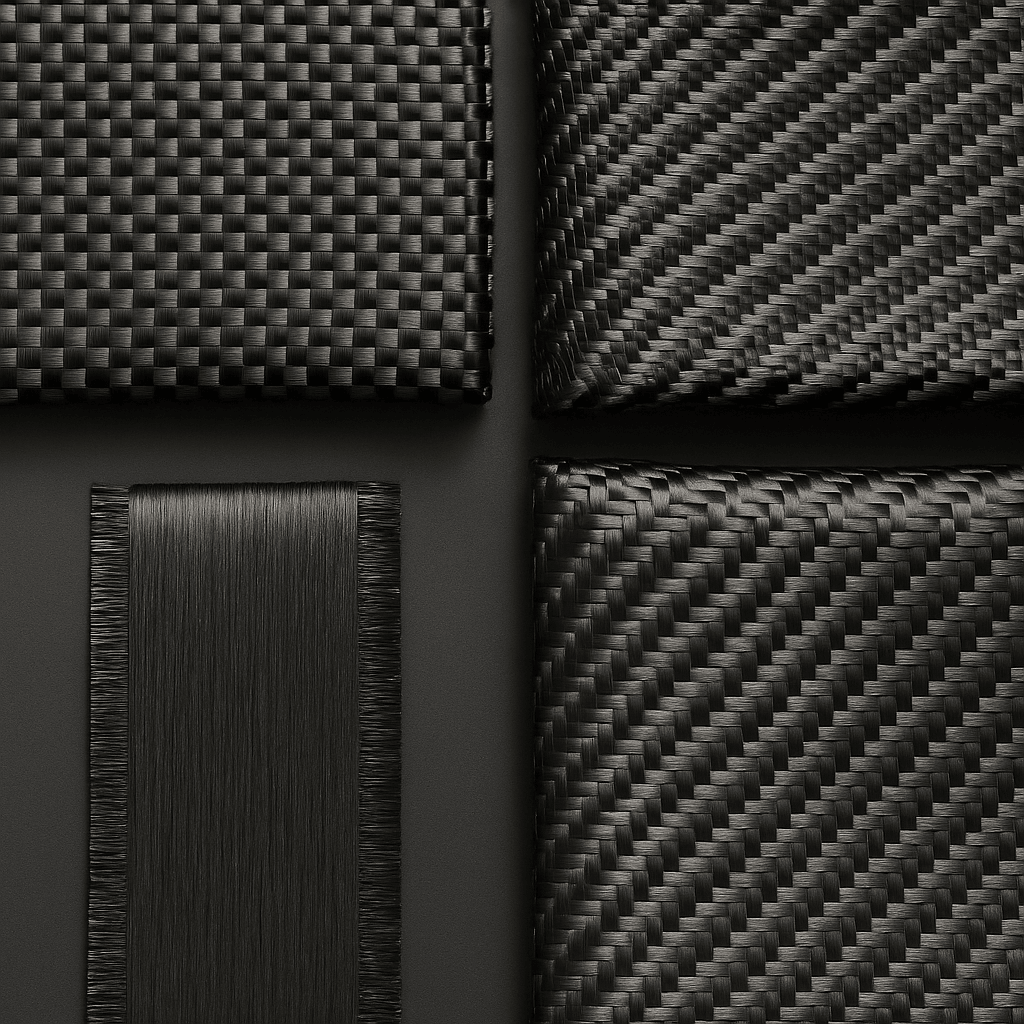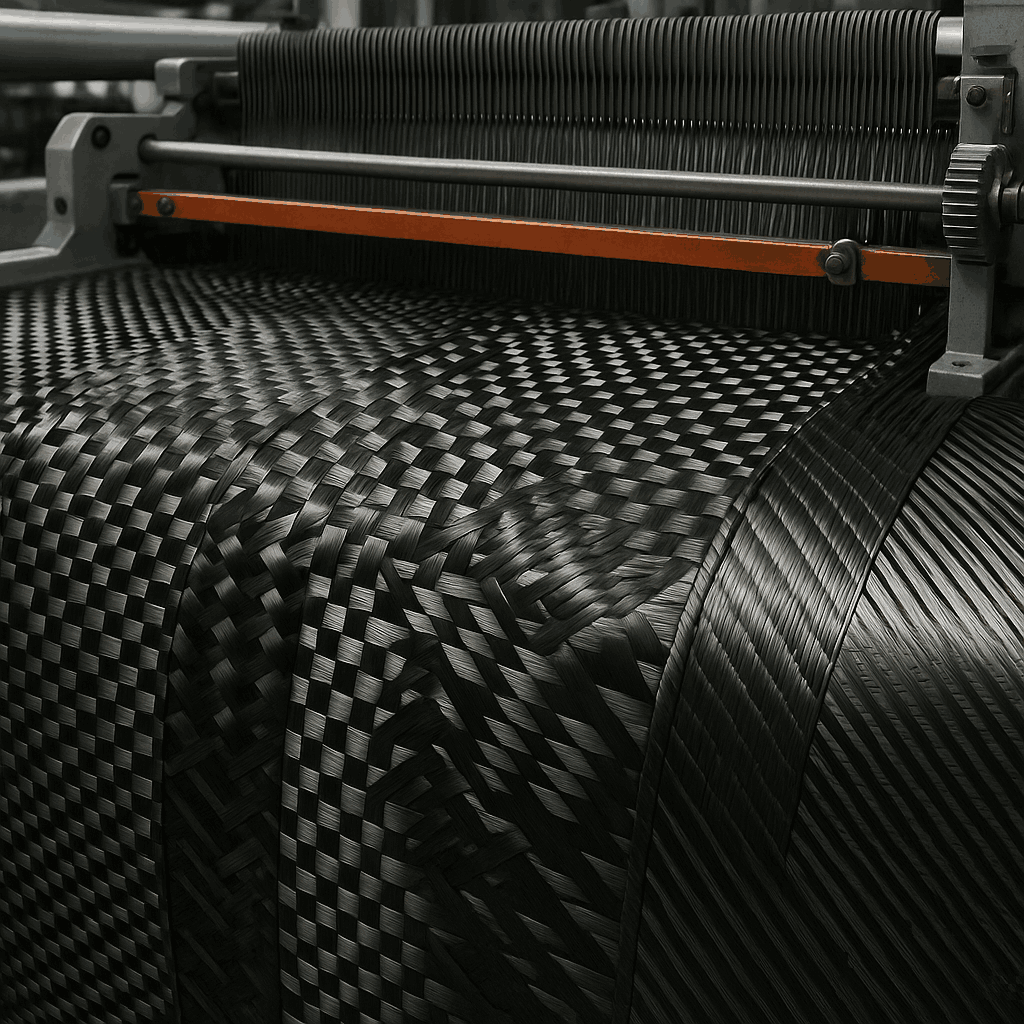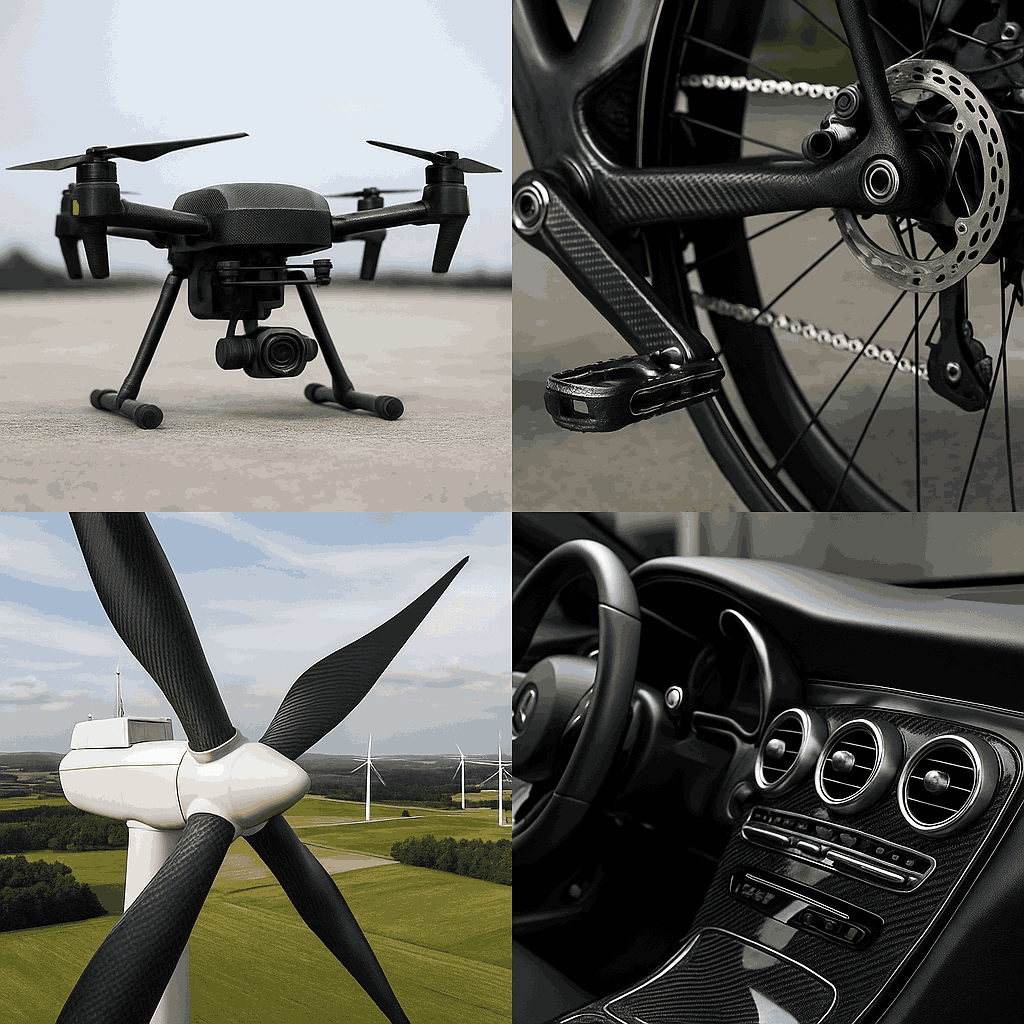In the field of carbon fiber composites, carbon fiber fabric is one of the most fundamental and critical reinforcement forms. It directly determines the strength orientation, stiffness distribution, and structural performance of the final product, and is closely tied to manufacturing process, cost-efficiency, and surface appearance. With over 20 years of expertise in carbon fiber, GBTECH presents this article to systematically explain the classifications, processing methods, weaving types, and application recommendations of carbon fiber fabrics — helping users make informed and practical decisions.

I. Basic Forms of Carbon Fiber Fabric
Carbon fiber fabrics are sheet-like reinforcing materials made by arranging or weaving carbon fiber tows. They are mainly divided into the following two categories:
1. Dry Fabric
Fabrics without any resin impregnation. They are later processed using RTM (Resin Transfer Molding), VARTM (Vacuum-Assisted Resin Transfer), or hand lay-up methods.
Advantages: Low cost, flexible storage and handling, adaptable to various processes.
Disadvantages: Requires precise resin control; final quality depends on operator skill.
2. Prepreg Fabric
Resin is pre-impregnated into the carbon fibers under controlled conditions and partially cured (B-stage). Requires cold storage and is cured under heat and pressure.
Advantages: Consistent resin content, stable mechanical performance, ideal for high-performance applications.
Disadvantages: Higher cost, limited shelf life, requires strict process control.
II. Classification by Fiber Orientation
1. Unidirectional (UD) Fabric
All carbon fibers run in a single direction, providing maximum strength along that axis.
Common in load-bearing components like wind turbine spars, drone blades, sports shafts.
2. Bidirectional (0°/90°) Fabric
Fibers interwoven in two principal directions, offering balanced structure and better flexural performance.
Suitable for general structural panels and protective housings.
3. Multiaxial (±45° / Multi-layer) Fabric
Multiple layers oriented in ±45°, 0°, 90°, etc.
Provides reinforcement in multiple directions; widely used in wind blades, EV chassis, and complex structural frameworks.
III. Impact of Weaving Styles on Performance


IV. Processing Method & Performance Implications

According to DragonPlate: 90–200g/m² fabrics are suitable for lightweight drone skins, while >200g/m² is ideal for structural frames and reinforcements.
V. Application Selection Guide


VI. GBTECH Offers — Professional and Reliable Carbon Fabric Solutions
With over two decades in advanced composite materials, GBTECH has established a robust system spanning R&D, manufacturing, inventory, delivery, and after-sales. We provide customers with professional, safe, and scalable carbon fabric solutions:
1. Extensive Inventory, Fast Delivery
In-stock fabrics: 3K glossy twill, standard plain dry fabric, UD fabric, aerospace-grade prepreg.
Common basis weights (90–300g/m²), widths (1000–1500mm) ready to ship.
Support for samples, batch shipments, and urgent project supply.
2. In-House Prepreg Production, Quality Assurance
Automated resin control with precision ±1.5%;
Supports low-temperature curing, bio-based resin systems;
All prepregs are traceable with COA, TDS, MSDS and meet aerospace/railway standards.
3. Flexible Customization and Structural Design Support
Customization lay-up orientations (0°/±45°/90°), multi-axial fabrics available;
Tailored width, basis weight, and sandwich composite options;
Turnkey solutions for material + structure + process configuration.
4. High Standards and Long-Term Partnerships
ISO 9001 certified;
Established supply chains with drone, EV, and wind energy clients;
Annual price-lock and inventory reservation plans available for stable delivery.
